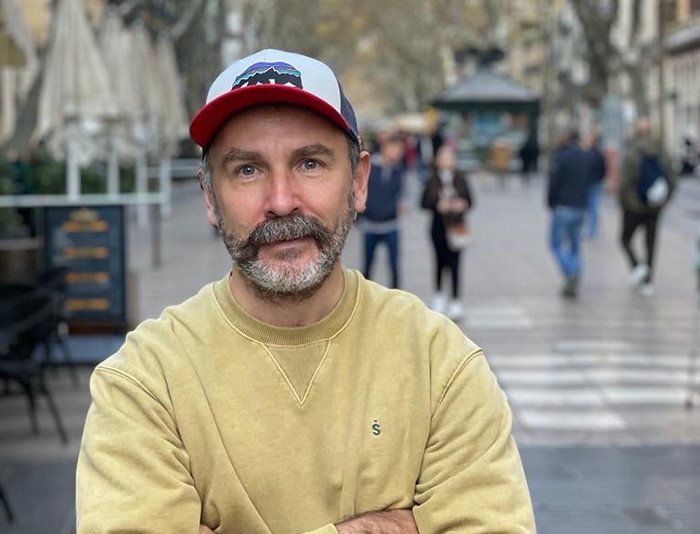Ralf Rüller sees the pandemic as an opportunity to refocus his business’ core values of sourcing and roasting high-quality coffee through close partnerships with farmers. With a roastery, 13 coffee shops globally and a subscription service delivering to 14 countries, Rüller believes that the specialty coffee segment will remain resilient during the cost-of-living crisis – as long as it remains focused on quality

Ralf Rüller, CEO and Founder, The Barn | Photo credit: The Barn
Our approach during the pandemic was to elevate quality even more and not trade down, which we saw as an opportunity to refocus our fundamental values. I don’t want to talk about buying Robustas from Vietnam and making them taste good – I want to keep specialty Arabica production alive and support farmers producing a great product.
We saw other roasters in Germany doing heavy discounts and from my perspective they were looting their branding. I would never discount my coffee – it’s specialty coffee and it has quality. The farms producing them work hard and they need to be paid a fair price.
Rather than discounting, we got creative with new benefits and added value. We increased our communications, heightened our connections, and explored new formats and products, such as the Home Bean Box, which comes with four or eight surprise coffee bags.
We always focused on consistency with the coffees we work with to keep excelling on those roast and flavour profiles, but we decided to bring in even more rare and high-cost coffees to be part of what we called the ‘Masterpiece’ subscription.
As a result, our online shop quadrupled in revenue, and we have largely been able to maintain that momentum. We ship B2B in 40 countries, and the geographic spread helped us during the pandemic.
Building momentum on pandemic innovation
We started producing in-home and on-the-go coffee products during the pandemic to reach more people. We developed instant coffee and drip bags, which reduce the need for complicated equipment, and we did not change our roast style for those products.
“I don’t want to take away a barista’s work and give it to a machine”
These products link very closely to cycling, hiking and outdoor sports – something many chose to pursue during the pandemic. So, we partnered with clients, such as cycle stores and outdoor clubs from New York to Mallorca, enabling us to tap into their customer base and become part of their events.
We also produce coffee capsules made from German wood chips; they are entirely compostable and taste fantastic.
That’s how you build a brand – from inside the community and with quality, supplying customers with what they want. They don’t need to be super affluent, they just need to be interested in consuming quality.
Staff retention is a bigger challenge than the rising cost-of-living
We haven’t seen a fall in trade at our cafés because of inflation or fear. If anything, the only reason that would happen is the quality of our service falling.
Many people in Germany are worried about the cost of living or the war in Ukraine escalating. However, in Germany there are still many people sitting on piles of cash after the pandemic. Of course, we have 10% inflation, but people are adapting, and food prices are now coming down.
On the other hand, we are dealing with a more difficult issue – the volatility of our staff base. It has been very difficult to motivate staff and last year, we saw that people didn’t want to stay in the summertime anymore after the lockdown.
We were lucky enough to get a lot of applications; however, retention, team building, and the ability to work with people are most important. Staff must understand this is a job where we serve people, and it’s hard work. We are not a coffee academy; it’s what we do for our customers.
Automation does not deliver the specialty coffee experience
Human interaction is very important, especially after the pandemic, and customers are hungry for café experiences.
I don’t want to take away a barista’s work and give it to a machine – that would cut out the heart of a café and take out the few things left for a barista to be creative. We may use an additional machine if it’s very busy to provide faster service, but we take time to brew and savour human interaction. It’s essential to steam milk by hand and it’s important to pour a V60 to perfection and talk about it while doing it. These are integral parts of specialty coffee.
Human interaction is very important, especially after the pandemic. People are hungry to return to a coffee shop to hang out and have conversations.
A world of opportunity for specialty coffee
We have always had a strong presence in the Middle East, a premium market with high coffee consumption. During the pandemic, this market responded strongly. Similarly, we will have five coffee shops in South Korea by the end of 2023, targeting the 25 million people around Seoul who consume quality coffee.
We plan to expand our global coffee subscription through marketing and grow our presence in key countries. Having a cafe in Dubai has already helped grow the business in the region, and I am expanding to other core countries with the support of my followers and customers.
This article was first published in Issue 14 of 5THWAVE magazine.
Subscribe to 5THWAVE to receive each edition in print and digitally or sign up to our newsletter and be the first to read the latest articles and updates on World Coffee Portal research.
